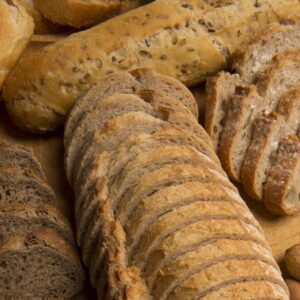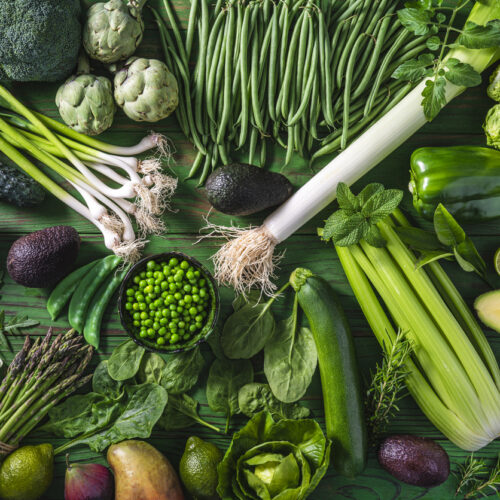
Cramming for exams? Flexing your mental muscle over a report? Whatever your focus, the type and timing of your eating habits can see you gain great results. Nutritionist Catherine Saxelby shows how.
In the lead-up to exams or any occasion that requires your utmost concentration, it pays to eat well rather than pig out on chocolate or munch on biscuits while you work.
Eating well helps with mental alertness, gives you enough energy to deal with those long hours of study/preparation, and helps deal with the strain of (pre-test) stress and nerves. Opting for nutrient-rich foods builds your brain power and also strengthens your stamina.
For optimum performance, try these six brain-boosting tactics.
-
Enjoy regular meals. Food is your brain’s only energy source, so a consistently balanced diet is essential. The way you eat counts, too. Make time for a proper break: sit down, and eat away from your desk whenever possible.
-
Schedule ‘pit stops’ to grab healthy snacks that refuel your brain. These nutritious options are easy to prepare:
— handful of nuts or a mixture of nuts and dried fruit
— low-fat yoghurt
— bowl of cereal made with trim milk
— banana or mandarin, or other fresh fruit
— couple of pieces of sushi
— raisin toast with a little reduced-fat spread
— three or four rice cakes or crispbread with a little no-added-sugar-or-salt peanut butter or reduced-fat cheese
— glass of hot trim milk with honey or Milo
-
Drink at least eight glasses of fluid a day to stay hydrated and offset fatigue. Ideally, you should mostly drink water but you could mix it up with:
— herbal teas
— low-fat milk
— vegetable and fruit juices
-
Top up your levels of omega-3 fats. For better brain function and eye health, eat these kinds of oily fish at least twice a week:
— canned tuna
— fresh or canned salmon
— prawns and calamari
-
Include vitamin B-rich foods to help your brain and nervous system perform at their peak:
— vegetables
— beans, peas, lentils and other legumes
— yeast spread, such as Marmite
— whole grains
— wheatgerm
-
Eat these iron- and zinc-rich foods for sharper memory and concentration:
— lean red meat
— fish and seafood, especially oysters
— chicken
— nuts
— whole grains, including brown rice, grainy breads and wholegrain breakfast cereals.
Pre-exam meal ideas
Before you face any sort of mental challenge, have a light meal or snack that provides carbohydrate, protein and a few of the ‘good’ fats. The glucose in the carbohydrates fuels the brain, while the protein and fats keep you feeling fuller for longer (so your tummy doesn’t rumble during the exam!). Make sure it’s familiar food, too. Don’t eat anything new or unusual on the big day.
How to eat for morning exams
Have breakfast. Many studies reveal that recall, performance and concentration are better if you’ve eaten a morning meal. Have cereal with trim milk, or enjoy multigrain toast with a healthy spread such as avocado. If you can manage more than this, go for an egg, a small tub of low-fat yoghurt, ‘lite’ baked beans on toast or some fresh or canned fruit.
How to eat for afternoon exams
Have a light lunch so you don’t feel drowsy or even nod off with post-meal lethargy. Have a bowl of soup and a grainy bread roll, or a sandwich (or wrap) filled with salad and lean meat or chicken.
Too anxious to handle solid food?
Whiz up a liquid meal. Blend your own fruit smoothie, or try one of the popular milk- or soy-based liquid breakfasts, such as Sanitarium Up&Go or Vitasoy VitaGO.
Fuel up with these nutritious meals
- A bowl of chickpea and vegetable soup with a small grainy bread roll
- A small can of flavoured tuna with reduced-fat mayonnaise and salad greens in a multigrain wrap
- Spaghetti Bolognese made with lean beef mince and grated vegetables such as carrots and courgettes
- Poached or scrambled eggs on soy-and-linseed toast with avocado and baby spinach
- A stir-fry made with 100g (raw weight) sliced chicken breast (or lean beef), with vegetables (broccoli, carrots, mushrooms) on a cup of brown rice
Plan for success
Take a short break every hour
Stretch, go for a walk or simply get some fresh air — whatever clears your mind and helps you recharge your body’s battery.
Make sure you’re getting enough quality sleep
Start going to bed at roughly the same time every night, and get up at the same time in the morning. Your body will start to recognise this healthy routine, enabling you to fall asleep faster and wake feeling better. If you have an early morning exam, get into the habit of waking early for a few days before the test.
Decide whether you’re an early bird or a night owl
You can then schedule some intense revision for your most productive time, whether it’s morning or evening. But don’t stay up too late!
Curb the caffeine
Students often rely on coffee to help themselves study into the night or before a major exam. But how much is too much?
Caffeine acts as a mild stimulant to the brain and nervous system, making you feel more alert and lessening the feeling of tiredness.
Consuming too much, however, can be a trap. If you overdo caffeine, you can feel irritable and anxious. It can also interfere with sleep and leave you with an upset stomach. And once you become dependent on caffeine, you can end up with a headache and feel tired if you suddenly stop having it — ie. classic caffeine withdrawal!
As a general rule, it’s wise to consume no more than 300mg caffeine a day — the equivalent of three or four cups of instant coffee, or two cups of percolated (filtered) or espresso coffee.
Save coffee for times when your enthusiasm is flagging and you need a boost. If you don’t want it to keep you awake at night, try to have your last cup by 6pm (those more sensitive to caffeine may need to make this 2pm). After that, switch to decaffeinated coffee or weak tea, which contains about one-third of the caffeine of coffee.
Alternatively, brew up a herbal infusion such as peppermint or ginger tea. These give you a refreshing pick-me-up without the after-effects of caffeine.
Eating breakfast can play a key role in your exam performance
An Australian study of students in Years five, six and seven revealed that their skipping brekkie adversely affected their concentration. In a separate study, 12- to 13-year-old students’ performance improved alongside the quality of their breakfasts — and a morning snack helped.
www.healthyfood.com










